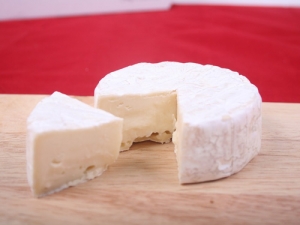Fonterra Milk Price Raised to $9.50/kgMS
As expected, Fonterra has lifted its 2025-26 forecast farmgate milk price mid-point to $9.50/kgMS.
 The food price index from Statistics New Zealand shows that in the 12 months to June 30 food prices fell by 0.5%.
The food price index from Statistics New Zealand shows that in the 12 months to June 30 food prices fell by 0.5%.
Cheese prices have fallen to their lowest level in almost nine years in the local market, with overall food prices dragged down by cheaper dairy products.
The food price index from Statistics New Zealand shows that in the 12 months to June 30 food prices fell by 0.5%, with the average price of cheddar cheese down 9.5%.
"The average price of a kilo of cheddar cheese was $7.68 in June 2016, down from $9.12 in June 2015. This was the lowest price since September 2007," consumer prices manager Matt Haigh says.
The fall in the price of dairy products in supermarkets comes as global dairy prices remain well down on the levels seen two years ago, which has caused global dairy giant Fonterra to slash its payout to farmers.
A Fonterra spokesman told Dairy News that we are seeing commodity prices globally coming down.
"We've passed on this drop and retailers in NZ have done the same.
"Supply and demand factors impact global prices which in turn flow through to our domestic market. We do our best to make sure our products remain accessible by protecting consumers as much as possible from the volatility we see in the commodity cycle."
Fonterra's monitoring shows the average price per unit of a block of natural cheese has decreased by 2.4%.
Christchurch boutique cheese maker Barrys Bay Cheese says it buys milk under the DIRA.
"Our input cost of raw milk is governed by the overall basket of products Fonterra sells," says Mike Carey, Barrys Bay Cheese.
"There are effectively two parts to the local market in NZ for cheese. The 1kg block business in the supermarket is driven by the sale price of 20kg blocks from Fonterra and the other part of the market is the small boutique producers like ourselves who buy milk under the DIRA, hence the milk price is our input cost," Carey says.
Agrisea NZ has appointed Craig Hudson as it's new chief growth officer.
State farmer Landcorp, trading as Pamu, is a forecasting a full-year net profit of around $100 million.
Tony Aitken, chief executive of Ruralco, has been awarded the Excellence in Business Leadership Award at the ANZ Business of the Year Awards.
Global trade has been thrown into another bout of uncertainty following the overnight ruling by US Supreme Court, striking down President Donald Trump's decision to impose additional tariffs on trading partners.
Controls on the movement of fruit and vegetables in the Auckland suburb of Mt Roskill have been lifted.
Fonterra farmer shareholders and unit holders are in line for another payment in April.
OPINION: Staying with politics, with less than nine months to go before the general elections, there’s confusion in the Labour…
OPINION: Winston Peters' tirade against the free trade deal stitched with India may not be all political posturing by the…